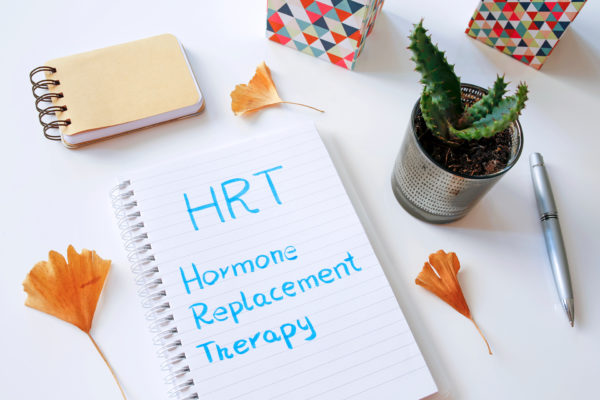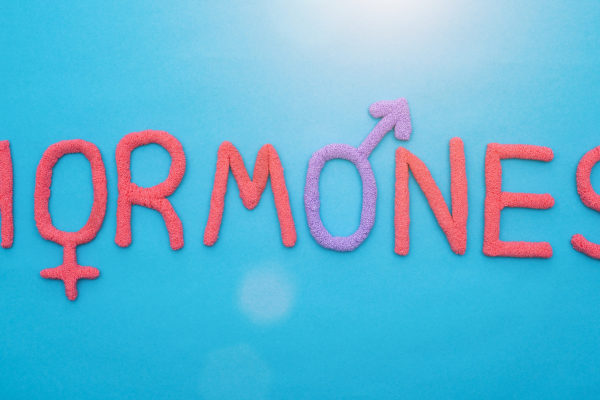Women who are aging can experience a decline in their hormone levels. This leads to several issues, including decreased energy, weight gain, and difficulty losing weight- but HGH therapy has been proven effective at restoring this body’s natural balance by increasing production of hormones like estrogen or testosterone that regulate things such as moods, bones density & muscle mass.
There is evidence showing how HGH might help with hot flashes due to the drop-off effect caused when you’re not producing enough Human Growth Hormone (the protein responsible for carrying out these tasks).
This article will discuss some potential benefits and why women needn’t worry about “aging” anymore after they turn thirty-five years old. We will also explore the different types of HGH therapy and how they can be tailored to meet your individual needs.
In summary, HGH therapy for women can help with bones density, sleep, libido, muscle mass, weight loss, and even energy levels. Another benefit includes skin and hair health as well. Typical GH therapies include sermorelin it ipamorelin therapies. Contact us to learn more!
HGH – What Does it Do?
If you are a woman over the age of 30, the chances are that you have already started thinking about the effects of aging on your body. You may have even considered taking hormone replacement therapy (HRT) to help ease some of the symptoms associated with menopause.
However, another type of hormone is becoming increasingly popular among women of all ages – human growth hormone (HGH) therapy. Let’s address what HGH is and why women require it as they age. What are the advantages of HGH treatment? Is there a disadvantage? What kinds of HGH are available, and how will they help your therapy? We will answer all that questions as you read about this guide.
What is HGH Therapy, and What Are The Benefits for Women?
Human growth hormone is produced by the pituitary gland. It is a natural hormone that helps to regulate metabolism, cell regeneration, and tissue growth. Our bodies produce less and less HGH as we age, decreasing muscle, bone density, skin elasticity, and energy levels.
HGH therapy is a treatment that involves the administration of human growth hormone (HGH) to replace the declining levels of HGH in the body. It is also approved to help adults with AIDS- or HIV-related growth hormone deficit that causes uneven fat distribution. In addition to improved energy levels and weight loss, HGH therapy has also been shown to improve skin tone and texture, reduce wrinkles, strengthen bones, and increase muscle mass.
Why Do People Use HGH?
Human growth hormones have been used for many different purposes. First, the fitness category includes muscle building and fat loss; it can help athletes become stronger or more agile on their sport’s field and improve recovery time after injury if taken early enough in an athlete’s career! Second, there is anti-aging: better skin health, including hair/nail strength plus sight improvement (elderly people may be able to see again).
Third, we find healing where faster heal times mean less pain from surgery. The fourth category would be HGH supplementation for children or patients with growth hormone deficiencies due to various medical conditions. The first three types of usage are referred to as “recreational.”
Those who use them recreationally will not see any real benefits outside their enjoyment. People who are serious about recovering should only use these drugs if they have consulted with a doctor. There are approved treatments that are available only by prescription right now.
It is important to note that HGH has been approved for use in the United States solely to treat growth hormone deficiency and associated problems linked with HIV infection.
How Does HGH Therapy Work?
HGH therapy involves receiving injections of synthetic HGH (somatropin) regularly. A doctor or nurse can administer the injections, or you can even learn to self-inject if you prefer. The frequency of injections will depend on your treatment plan. Some people only need to receive injections once per week, while others may need to obtain them several times per week.
Two Main Types of HGH Therapy
HGH therapy comes in two different forms: Injections and pills.
- Injections – Injections are the most common form of therapy, as they are more effective in delivering the hormone directly into the bloodstream. Injections are typically given daily. It is more expensive and can be painful, but they are also more effective.
- Pills – are taken orally and work to stimulate the pituitary gland to produce more HGH. Pills are less expensive and have no side effects, but they are not as effective as injections.
Note: The type of therapy that is right for you will depend on your individual needs and preferences. It is important to always consult with a doctor before beginning any form of HGH therapy, as there are risks involved.
Who Should Consider Undergoing HGH Therapy?
Adults with a growth hormone deficiency may get synthetic HGH from their doctor.HGH therapy may also be recommended for children and adolescents with medical conditions that prevent them from producing enough growth hormones.
Moreover, HGH therapy is most often prescribed to men and women over the age of 30 who have begun to experience a natural decline in human growth hormone levels. HGH therapy may be a good option for people looking to improve their overall health, increase their energy levels, or lose weight. It can benefit women who want to improve their quality of life as they age.
If you are struggling with fatigue, decreased bone density, Thinning hair, Sagging skin, and loss of muscle mass and are looking for a way to improve your quality of life, HGH therapy may be right for you. Consult with a doctor to see if it is an option for you.
Why Should Women Take HGH Therapy?
There are many potential benefits of HGH therapy for women. In addition to helping to improve the symptoms of menopause, HGH therapy can be used for several conditions, including:
- Boost energy levels – HGH therapy can help boost energy levels by increasing the production of new cells. This can help to improve stamina and reduce fatigue.
- Difficulty losing weight or gaining weight – If you are struggling to lose weight or have noticed that you are gaining weight more easily, HGH therapy can also help. Human growth hormone helps regulate metabolism, and by increasing your natural levels of HGH, you can achieve a healthy weight.
- Heart Disease – Heart disease is a significant concern for women as they age. HGH therapy can help to lower cholesterol levels and improve heart health by reducing inflammation throughout the body. In addition, HGH therapy can also help to improve blood sugar levels, making it an effective diabetes treatment.
- Improve bone density – HGH therapy can help to improve bone density by increasing the production of new bone cells. This can help to reduce the risk of fractures and other injuries. In addition, HGH therapy can also help to improve cognitive function and reduce the risk of age-related diseases such as Alzheimer’s disease.
- Wrinkles and other signs of aging skin – Our skin begins to thin and lose elasticity as we age. Wrinkles and fine lines may develop as a result of this. HGH therapy can help improve your skin’s appearance by increasing collagen production. With regular treatment, you can achieve smoother, more youthful-looking skin.
- Increase muscle mass – HGH therapy can help increase muscle mass in people deficient in this vital hormone. In addition, HGH therapy can also help to improve strength, stamina, and recovery from exercise. HGH therapy may be right for you to gain muscle mass.
- Decrease body fat – HGH therapy can help improve insulin sensitivity and reduce the amount of fat stored in the body.
- Improve mood, and well-being – HGH therapy can help improve mood and well-being by increasing the production of serotonin. Serotonin is a hormone that helps regulate mood and is associated with feelings of happiness and well-being.
HGH therapy has many potential benefits. However, it is essential to note that not all of these benefits have been proven in clinical trials.
How Much Does It Cost on Average?
HGH therapy is extremely expensive. HGH therapy can cost anywhere from $500 to $3000 per month. The cost of HGH therapy varies depending on the type of treatment you receive. Injections of synthetic HGH typically cost between $500 and $1000 per month.
What Are the Side Effects?
While HGH therapy is generally safe, there are some potential side effects. These side effects are typically mild and go away after a few weeks of treatment. HGH is a very slow-acting hormone, and people won’t notice much difference unless taken in large doses (15–30iu/day).
The most common side effects associated with HGH therapy include:
- Nausea
- Headaches
- Muscle pain or weakness
- Joint pain
- Fluid retention
- Drowsiness
- Carpal tunnel syndrome
Risks Associated with HGH Therapy
As with any medical treatment, there are potential risks associated with HGH therapy that should be considered before starting treatment. These risks include:
- Organ damage
- Acromegaly (a condition caused by too much growth hormone in the body)
- Carpal tunnel syndrome
- Increased insulin resistance
- Type 2 diabetes
- Edema or swelling in the arms and legs
- Joint and muscle pain
- Gynecomastia or breast tissue growth in men
- Increased risk of certain cancers
These risks are uncommon and mainly occur in persons with preexisting medical issues. HGH injections are not suggested for individuals with tumors, cancer, serious diseases, breathing difficulties, or other conditions that might require surgical intervention.
Results and Expectations from HGH Therapy and How Long Do They Last
HGH therapy can provide relief from a wide range of symptoms associated with aging or menopause for the woman. HGH therapy also helps boost the immune system and reduce the risk of illness. Most women who undergo HGH therapy will see a noticeable improvement in their bodies within a few weeks. It may sometimes take up to three months to see the full effects of treatment. In most cases, the benefits of HGH therapy last for as long as the patient continues to receive treatment.
Considerations Before Starting HGH Therapy
The body produces its hormone, which means it’s very safe. However safe is in the dose. If you get too much of anything, it can harm you. Do not self-medicate. It’s always a must to see a doctor that is skilled in HGH therapy. They’ll be able to tell if HGH treatment is appropriate for you and develop a customized treatment plan based on your needs. HGH therapy does not provide results quickly. It takes time for outcomes to emerge. HGH therapy isn’t cheap, so consider the cost too before deciding.
Ways to Naturally Increase Your HGH Levels
There are proven ways to increase human growth hormone (HGH) levels. It’s worth giving natural methods a try before exploring other options to find out what works best for your situation, whether it be medication or supplements.
Here are some natural ways to increase your HGH levels:
Get enough sleep
Lack of sleep can decrease your HGH levels. Aim for seven to eight hours of uninterrupted sleep to allow your HGH levels to reach a high enough level for maximal benefits. We make high amounts of this hormone while we sleep.
Exercise regularly
Exercise can help increase your HGH levels. Get at least 30 minutes of continuous moderate-intensity activity. Try compound exercises like bench Presses & squats, and High-intensity workouts.
Do intermittent fasting
Eating a healthy diet high in protein and low in sugar can help increase your HGH levels. Insulin is reduced during intermittent fasting. Insulin levels are low = HGH is produced in more significant amounts. In women, HGH increased by 1,300 percent, while it rose by almost 2,000 percent in males.
Reduce stress
Stress can decrease your HGH levels. Look for methods to unwind and reduce stress. Try meditating and go for a walk outdoors.
Lose weight
The more overweight you are means, you’re more likely to have higher insulin levels decrease HGH production.
Reduce sugar and refined carbohydrates
Sugar consumption has been linked to a decrease in HGH production. Both sugar and refined carbohydrates raise insulin levels. Reducing your intake of these foods might help you achieve higher growth hormone levels.
Consider taking a glutamine supplement
Taking a glutamine supplement isn’t the only way to boost glutamine levels. Glutamine supplementation has been proven to increase HGH production. A 2-gram dose of glutamine caused HGH to rise by 78 percent temporarily in a 1995 study. The benefits of glutamine aren’t limited to growth hormone production. This amino acid can enhance immune function.
Bottom-Line
The purpose of growth hormone therapy in adults and children is to increase vitality, metabolism, and body development. Human growth hormone therapy comes with many considerations, not the least of which is understanding how it will impact your body and mind. HGH therapy does have potential benefits for women as they age, but some risks need to be considered before starting this type of treatment.
Although the best way to boost your HGH levels is by taking a supplement or therapy, diet and lifestyle choices can make a significant impact too. If you consider HGH therapy, it is important to talk with your doctor about the possible side effects and whether or not the benefits outweigh these risks.
What are your thoughts? Have you ever considered HGH therapy? Let us know in the comments below!






